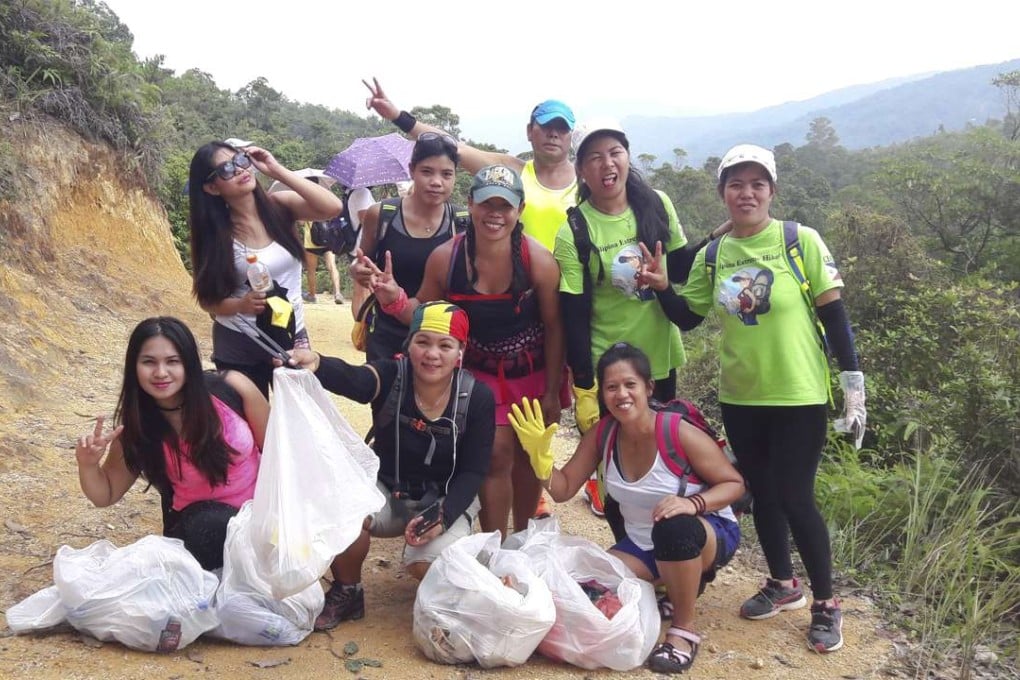Domestic helpers clean up Hong Kong’s countryside on their days off, one trail at a time
Sacrificing Sunday, their only weekly day off, for the good of Hong Kong, helpers - joined by some residents - walk the city’s trails, picking up litter as they go

Just like any domestic helper in Hong Kong, Armeni Sujayani gets only one day off a week. But you won’t find her putting her feet up on this precious day of rest or heading into the city’s urban heart as many of her compatriots do.
Sujayani, a 38-year-old from Indonesia, spends her Sundays hiking for hours on Hong Kong’s extensive network of trails. Recently, she made her weekly outing even harder work: by picking up litter left on the trails by others.
She is part of a group of more than 60 people – mostly domestic helpers, but also locals and expats – who call themselves “Clean Up Hong Kong’s Trails” . Formed at the end of October, the volunteers have cleaned the entire 100 kilometre MacLehose Trail from Sai Kung to Yuen Long over three Sundays, picking up a total of about 150 plastic bags of rubbish.
“I want to set an example to my fellow hikers to keep the trail clean and pick up whatever litter they can,” says Sujayani, who has been working in Hong Kong since 2006 and last year completed her first Oxfam Trailwalker. “You don’t have to be super fit – everyone can join the trail cleanup.”
The initiative was started by Rob Hayes, a hiking enthusiast and resident of O Tau Village in Sai Kung. Hayes, an Australian native who moved to Hong Kong nine years ago, had been thinking for a while about cleaning up the MacLehose Trail in one day.